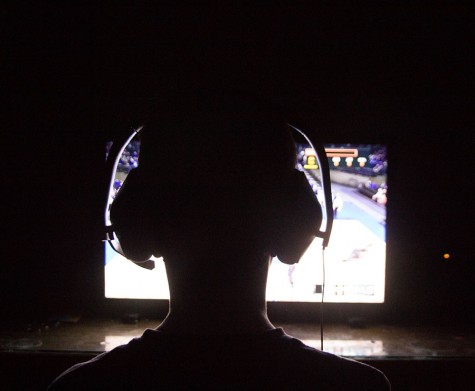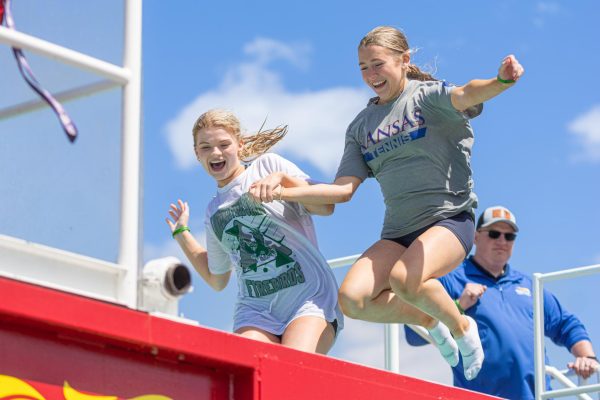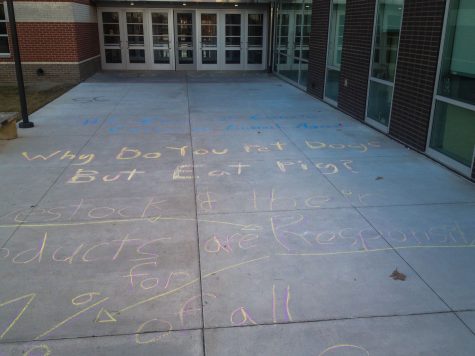“eSports” prove popular among student body
There are 15 seconds before the round starts. Sophomore Eli Bork’s five man team just lost a decisive round that has put them one point away from losing the entire match. It’s been a close game so far, but now Bork’s team finds itself in a financial deficit. Only two members of the team have the money to buy all of their gear. The rest, including Bork, are forced to make due with inferior weapons and a lack of smoke grenades. One of Bork’s teammates calls for an “A-split” with a smoke grenade middle. Another team- mate disagrees and reminds them that the opposing team has played very well on A-Bombsite so far. Eli speaks up and proposes a rush up middle, while the bomb goes through tunnels to B-bombsite. The strategy is agreed on and the clock hits zero.
“It’s just like any other sport: you practice, you try new strategies, you play with a team of friends who you enjoy being around and who you know can make each other better,” Bork said.
Bork includes the competitive shooter, Counter Strike: Global Offensive, among his other hobbies such as theater, singing and guitar.
In Counter Strike, the terrorist team is tasked with planting and defending a bomb, while the counter-terrorist team attempts to defuse the bomb. Both teams have to buy weapons, armor and grenades at the start of every new round with in-game money they accumulated from the round before. What results is a game that takes several years to achieve skill at, let alone master.
What makes “eSports” like Counter Strike different from normal video games, is their focus on skilled, competitive play between human players and teams. The communities behind these games are distinctly students from high school to college, and the millennials. It’s hard to find anyone over the age of 35, and this is due to a couple key factors according to Bork.

eSports enthusiasts will often spend hours gripping their video game controllers as they work towards the next level. In recent years eSports has reached a larger audience of both amateurs and professionals.
One reason goes beyond just having fun, and goes into high schoolers usual desire to feel accepted: “anyone can play together. So you can have a team of completely different people, and that’s really special that it brings the community together like that, and it creates a very non-judgmental environment,” Bork said. Feeling accepted no matter who you are isn’t the only reason young people flock to these games.
“If you look at people between 20 and 30, they have grown up with computers in their homes, and spent a lot of their young lives with computers and technology around them,” Bork said. “Since they are more used to it, they embrace the idea of video games as an activity and important to their life.”
With eSports being framed as an accessible outlet for competitive play for high school and college students, it can be tempting to make comparisons to traditional high school sports like basketball and football.
“Competitive gaming is a different beast than conventional sports, and it has a very different audience as well,” the man who goes by “TheWarOwl” on YouTube said. “I produce a YouTube channel that teaches viewers how to play Counter-Strike with a competitive mindset, and cover topics ranging from the basic game mechanics to analysis of professional matches.”
TheWarOwl, who has over 750,000 subscribers on the site and has been playing eSports for 15 years argues that the eSports community isn’t looking to be on the same level as other sports, and that the internet changes the way these communities develop and interact.
“Counter-Strike is going to be broadcast on TBS, but in my opinion, I don’t think it will work out, since the viewers of Counter-Strike are those that prefer to consume their entertainment through online streaming, not cable television,” he said.
However, a career in competitive gaming is extremely risky according to WarOwl, even more so than being a professional athlete: “Society won’t hold a safety net under you or give you unfair advantages over your peers,” he said. “A career in eSports does not last very long, and you have a minuscule chance of success, which can greatly hurt your future if you don’t prepare properly.”
A lot of this instability is caused by the relative youth that the eSports industry has compared to leagues like the NFL and the NBA. But playing eSports doesn’t mean you seek to “go pro,” in fact, the vast majority do not want to. For players like Bork, just playing the game competitively with friends is all he could ask for.
“When it comes down to it, eSports is something that you are passionate about,” Bork said. “You shouldn’t devote your entire life to it, just like any other sport.”









